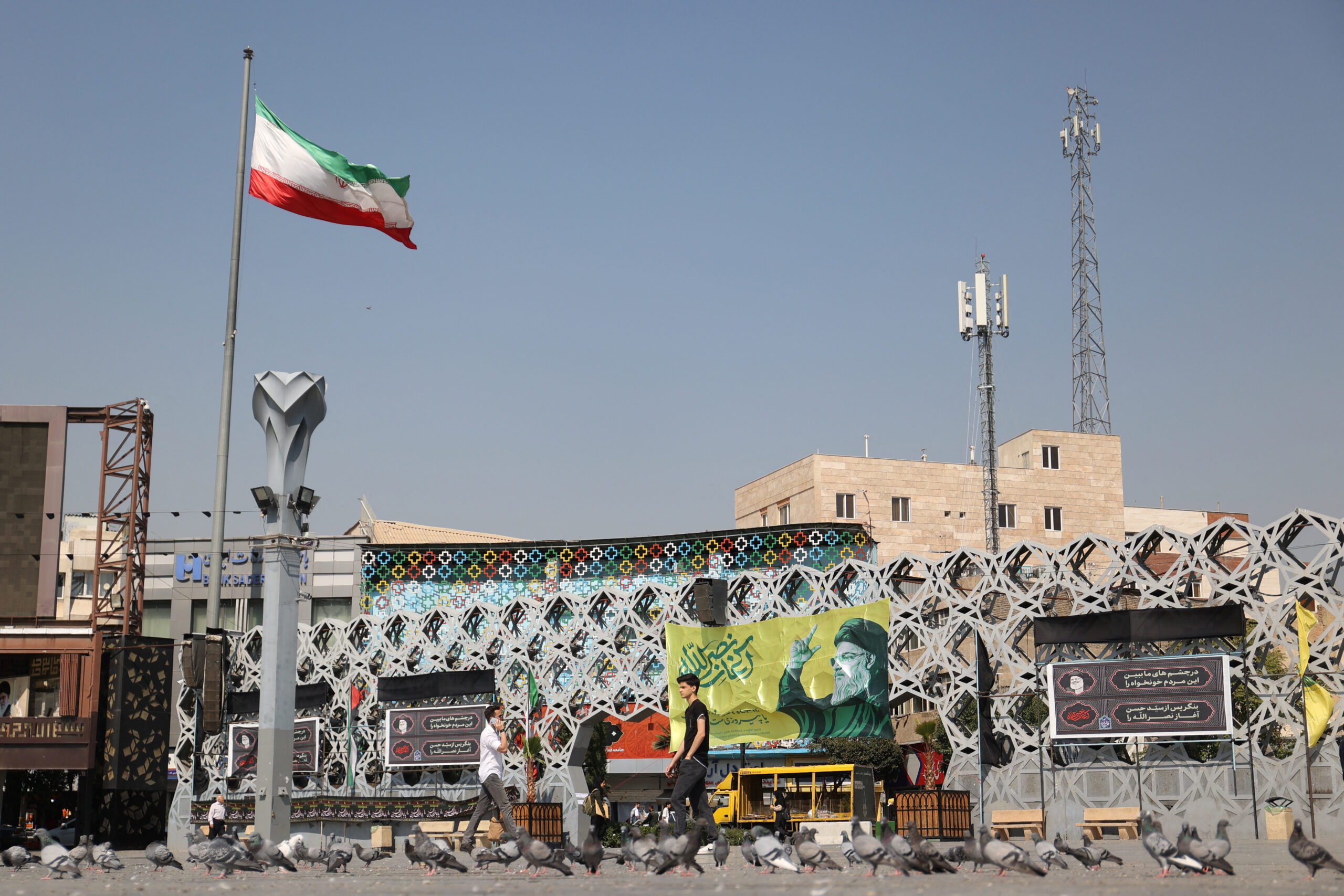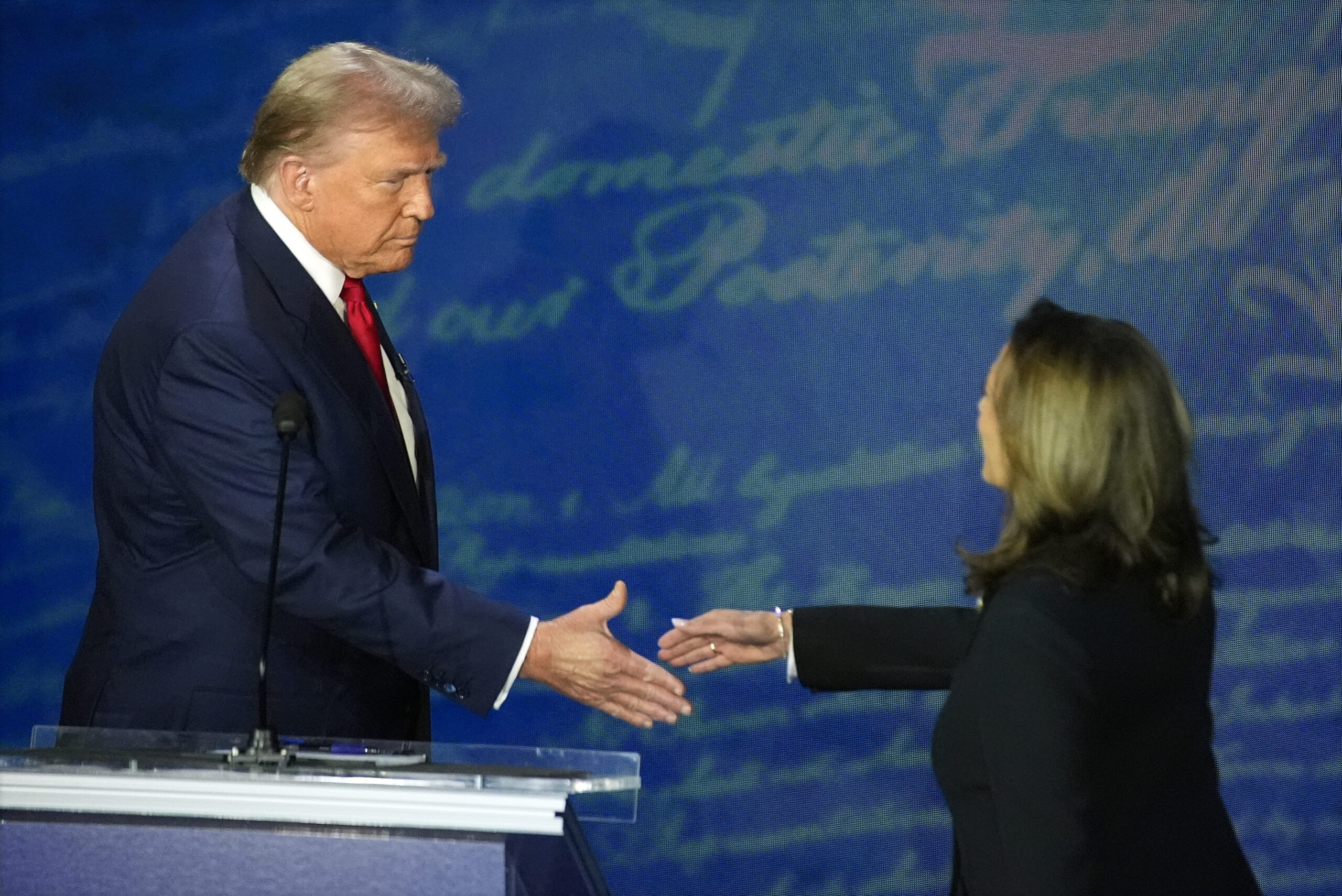Uncertain: Iran Policies of U.S. Presidential Candidates
Regardless of who prevails in November's presidential election, the next U.S. administration may contend with either a nuclear-armed or fragmented Iran.

This publication is part of AGSIW’s U.S. Presidential Election series.
“I think he’s got that one wrong, isn’t that the one you’re supposed to hit? It’s the biggest risk we have, nuclear weapons,” said Republican presidential nominee former President Donald J. Trump in early October, in response to President Joseph R. Biden Jr.’s advising Israel not to target Iran’s nuclear infrastructure. Vice President Kamala Harris took an even stronger stance in her October 7 “60 Minutes” interview, during which she named Iran as the United States’ “greatest adversary,” saying, “There’s an obvious one in mind, which is Iran. Iran has American blood on their hands … What we need to do to ensure that Iran never achieves the ability to be a nuclear power that is one of my highest priorities.”
It’s unclear whether these statements reflect mere campaign rhetoric or signal the candidates’ actual post-election policies. If Israeli Prime Minister Benjamin Netanyahu follows Trump’s advice and attacks Iran’s nuclear facilities, would a reelected Trump drag the United States into another “forever war” to prevent a nuclear-armed Iran? And does Harris truly view Iran as a greater threat than China or Russia, and would she act accordingly if elected?
During his presidency, Trump led a “maximum pressure” campaign on Iran, but when, in 2019, Iran targeted oil facilities in Saudi Arabia, a country that helped enforce the Trump administration’s economic sanctions against Iran, Trump declined to commit U.S. forces to defend Saudi Arabia. Would his stance be the same if Israel were under threat after striking Iran? Meanwhile, the Biden-Harris administration’s current National Defense Strategy prioritizes China as the United States’ “pacing challenge” and Russia as an “acute threat,” with Iran regarded as a destabilizing regional actor, not a global adversary.
Iran-related issues appeal to key voter constituencies in the United States, which might explain some of the candidates’ statements. Yet the volatile Middle East dynamics contribute to the uncertainty as well.
The surprise victory of Masoud Pezeshkian in Iran’s recent presidential election had raised hopes for renewed negotiations between Tehran and Washington, potentially revisiting an agreement like the 2015 Joint Comprehensive Plan of Action nuclear deal. However, escalating tensions between Israel and Iran could entangle the current or next U.S. administration in conflict.
Since mid-September, Israel has neutralized significant numbers of Lebanese Hezbollah fighters and assassinated key leaders. Buoyed by these successes and confident in its missile defenses, Israel may feel emboldened to strike Iran’s nuclear infrastructure. Two classified U.S. government documents leaked to the Telegram channel of Middle East Spectator on October 17 detail Israeli preparations for an extensive strike inside Iran, although the targets remain unknown. While the leak may, like earlier U.S. government tactical releases of Ukraine-focused classified intelligence, be aimed at dissuading Israel from conducting extensive strikes inside Iran, there is no guarantee of Israeli restraint: If Iran retaliates – as it has on past occasions – the United States could face overwhelming pressure to join a military confrontation. Iranian strategists and military experts appear aware of Israel’s plot but appear fatalistic.
While a U.S. ground invasion seems unlikely due to previous misadventures in Afghanistan and Iraq, a prolonged bombing campaign reminiscent of President Bill Clinton’s airstrikes on Iraq in the late 1990s is a possibility. Suspecting Iraqi President Saddam Hussein harbored nuclear ambitions, the Clinton administration engaged in economic warfare against Iraq, financed and armed opposition groups and established no-fly zones to protect them from the Iraqi air force, and bombed military targets to degrade the regime’s ability to defend itself against the internal opposition. In the end, it took a U.S. ground invasion of Iraq to overthrow the regime in Baghdad, but the campaigns significantly degraded the capabilities of the Iraqi state. A similar campaign against Iran would aim to cripple Iran’s air defense, missile systems, and nuclear infrastructure. As with Iraq, in the 1990s, there’s also the potential for the United States and Israel to arm Iranian ethnic minorities and establish no-fly zones, potentially triggering internal strife or even regime change, although, as with Iraq, the latter may not materialize absent a U.S. ground invasion of Iran.
On the other hand, Iran could react by brutally suppressing dissent, much like Saddam Hussein’s regime in Iraq did in the 1990s. Without a U.S. ground invasion, which appears unlikely for the time being, the Iranian regime might endure long enough to develop nuclear weapons by late 2025, creating a “balance of terror” with Israel and the United States. However, Iran could also implode under the pressure of a bombing campaign and civil war, leaving the next U.S. administration to contend with either a nuclear-armed or fragmented Iran.
The views represented herein are the author's or speaker's own and do not necessarily reflect the views of AGSI, its staff, or its board of directors.


















